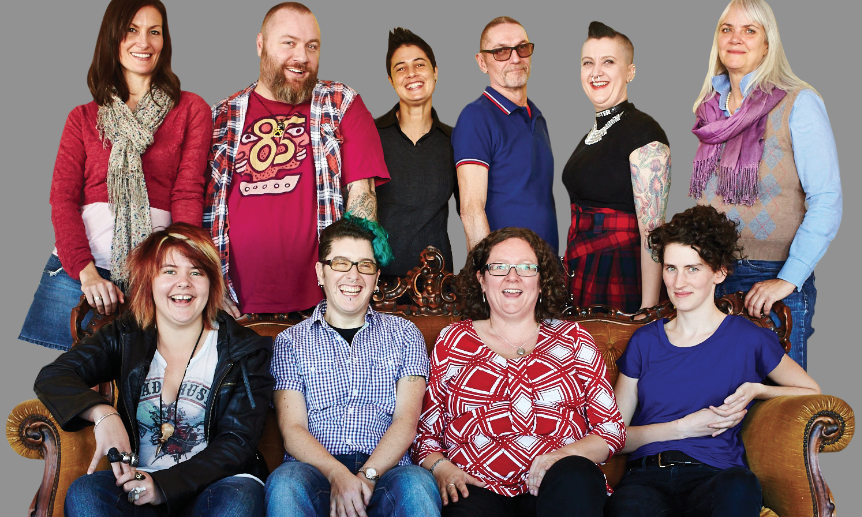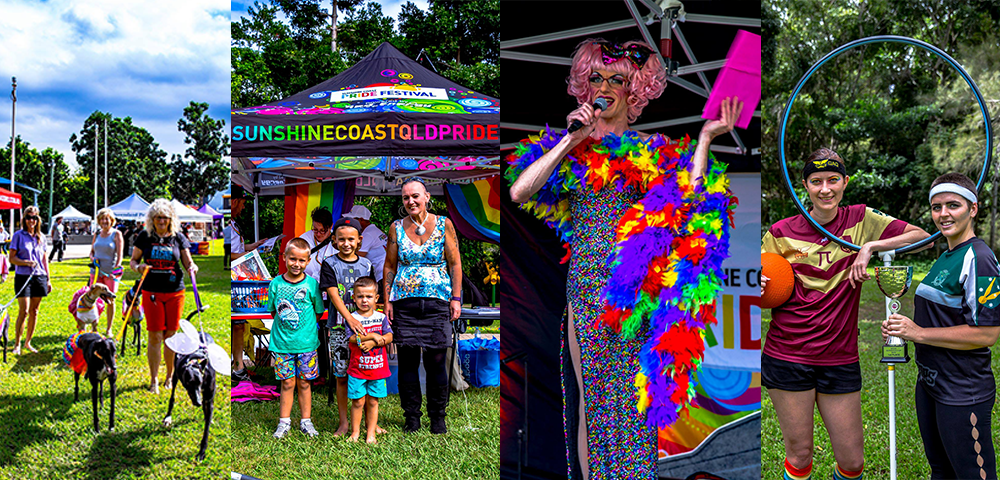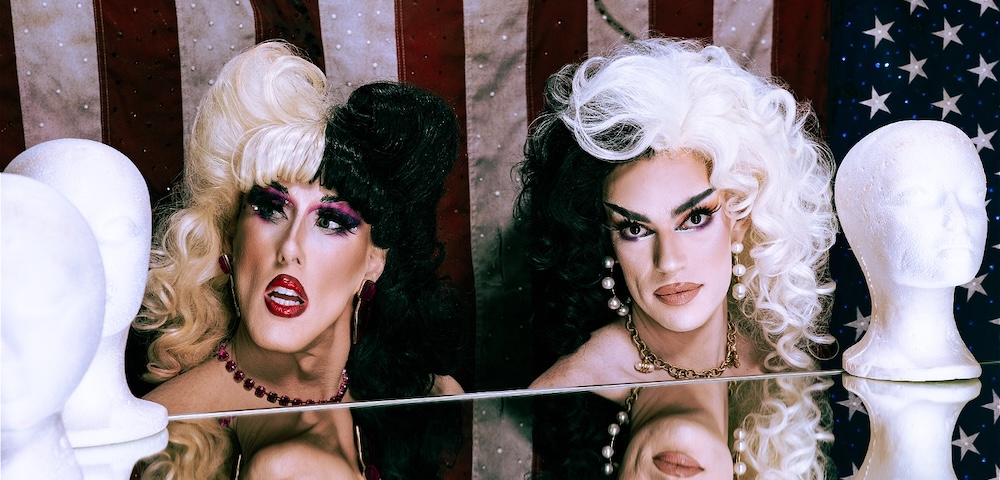
Connecting our community

They are the calls Fiona likes best.
The ones where someone rings back to thank her for listening or for pointing them the right direction.
“Often people might ring because they’re same-sex attracted but feel quite isolated,” Fiona says.
“And then later they’ll be in touch updating you on a group you’d recommended or a life crisis they had and they tell you how helpful you were and how they appreciate the service.
“People are honest with us and it’s a privilege to be able to listen and help.”
Fiona is a volunteer at NSW’s Twenty10/Gay and Lesbian Counselling Service, one of six organisations that have come together to create QLife, Australia’s first nationally-oriented counselling and referral project for LGBTI people.
Launched last year, QLife’s other current partners are Queensland’s Gay and Lesbian Welfare Association (GLWA), Diamond House in South Australia, Living Proud WA, Switchboard in Victoria, and funding and governance is facilitated by the National LGBTI Health Alliance.
For Fiona, the difference with QLife is she now helps people from all over Australia and, if she has a tough call, she can immediately speak to someone for advice and support, even if they are half a country away.
Leanne Renfree, Manager of the Melbourne-based Gay and Lesbian Switchboard, says QLife Australia’s LGBTI helplines were increasingly facing challenges meeting the needs of LGBTI people.
“Some of the services are over 40 years old but we’ve all been working in isolation with varying levels of funding and, in some cases, no funding at all,” she says.
“Our services were under more and more pressure,” she says.
“If our phone lines were engaged it meant the call went unanswered which isn’t ideal for a counselling line.”
QLife has now linked all of the counselling services together and provided a consistent level of locally-based staffing to help with volunteer support and administration.
If someone calls the 1800 QLife number, they will initially be directed to a volunteer within their home state. However, if those lines are busy their call will be directed to a service in another state or to a paid member of staff.
All the helplines now combine their referral databases so volunteers have access to local information no matter where they are physically located.
“It’s not a new service,” says Renfree, “It’s using the resources of the projects that already exist and putting them under one umbrella so we have nationally consistent coverage and can help more LGBTI people more of the time.”
“A lot of these vital services were surviving for decades on little more than chook raffles and donations and yet were taking calls from often very vulnerable people who needed support,” says Ross Jacobs, National Clinical Director of QLife, “Now we have got each other’s back.”
“For the first time ever it doesn’t matter if you’re phoning from outback SA or metro Brisbane, there’s one number and always someone to talk to.”
QLife, which is funded by the Federal Department of Health for an initial two year period, provides a core national phone and web chat service every evening as well as local training, clinical supervision for volunteers and the backup of staff support.
Jacobs says QLife fundamentally differs from other counselling services.
“One of our main strengths is we’re pretty much the only helpline where you can have an expectation of the kind of person that’s going to be taking your call. The lines are answered from people who live within our communities,” he says.
“LGBTI people want to talk to LGBTI people about LGBTI issues.
“You don’t have to educate us. For example, if you want to explore the fact you thinking you might be trans* we understand some of the issues and questions you might be working through,” he says.
The partnership has meant some of the promising initiatives that were only available in one state can now be accessed by LGBTI people nationwide.
One of those is web chat, pioneered in Queensland by GLWA. It’s a method of communication that’s almost ignored by people over the age of 35 who access QLife’s services.
Yet, to a younger social media savvy demographic, it’s the norm, with 85 per cent of people accessing QLife’s web chat being under 26.
“The level of engagement with our web chat service is compelling and what it says to me is that young people just don’t speak on the phone and for some young people it’s not safe to talk on the phone particularly if you’re still living at home,” Jacobs says.
“There’s no bills for a number to crop up on and no one in the next room overhearing your conversation so it introduces a level of safe exploration and confidence that you’re not going to get sprung, because you can just close the laptop.”
Another advantage of QLife’s national approach has been the ability to reach audiences a local service never could.
“We had a tiny mention in Dolly magazine and in the two weeks after that happened we saw a significant spike in young female-identified chatters coming through,” Jacobs says.
“So, rather than all talking individually, the helplines are coming together with a single voice which means we are being heard in mainstream spaces and more people are taking notice of what we can offer.”
Jacobs adds that more than a third of QLife’s calls are from people seeking information about coming out.
“No matter where you are along that journey, whether you’re someone in your 40s discovering or someone older or younger, a lot of what we do is help people explore that space.”
Callers and chatters might be seeking online resources, local support groups or, often, just a chat and an opportunity to get things off their chest.
And QLife volunteers are happy to simply have a conversation, especially with one-in-five callers contacting the service from rural and regional Australia — areas where visible LGBTI communities are thin on the ground.
“Unlike other helplines we don’t shut these calls down, in fact we do the opposite because we think good social connection is one of the main preventative factors for poor mental health,” Jacobs says.
When people call with more serious and pressing mental health issues, Jacobs adds, all their staff and volunteers are professional and have been trained to deal with these crisis calls.
But the aim is to catch those people who are wanting advice before it becomes a serious issue.
“QLife’s work is about helping those people who are reaching out before they hit the medical system,” he says.
“We are a really good value spend because we’re preventing people getting into instances where they need far more resourcing to keep their mental health in a good place.”
QLife has seen a 12 per cent rise calls in the last three months and overall, Jacobs says “the numbers are going bananas and that’s a strong indication of need.”
This year they hope to expand knowledge of the service further and introduce a series of “tip sheets” for local GPs and health providers to guide them when talking to LGBTI people.
However, at its core QLife is about helping the LGBTI community feel connected to one another no matter where they are or what they are experiencing, according to Jacobs: “We encourage people to start a conversation, even if they don’t know what they’re talking about yet.”
QLife is open daily from 5.30pm–10.30pm nationwide. Visit www.qlife.org.au or call 1800 184 527









